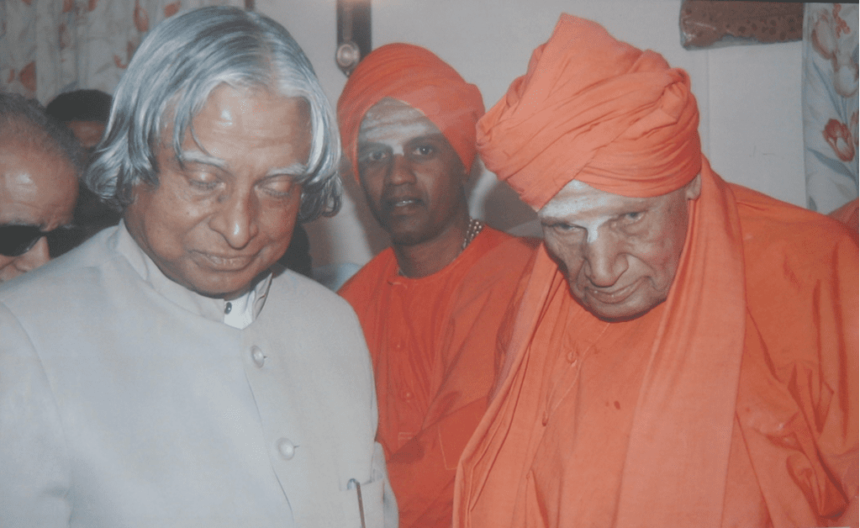Shivakumara Swami | Source: https://gerontology.wikia.org/
The Prime Minister, Shri Narendra Modi has bowed to His Holiness Dr. Sree Sree Sree Sivakumara Swamigalu on his Jayanti.
In a tweet, the Prime Minister said, “I bow to His Holiness Dr. Sree Sree Sree Sivakumara Swamigalu on his Jayanti. His innumerable efforts to serve society and care for the poor are widely remembered. We are deeply inspired by his noble thoughts and ideals.”
I bow to His Holiness Dr. Sree Sree Sree Sivakumara Swamigalu on his Jayanti. His innumerable efforts to serve society and care for the poor are widely remembered. We are deeply inspired by his noble thoughts and ideals. pic.twitter.com/m3tV461wR3
— Narendra Modi (@narendramodi) April 1, 2021
Read More: 1 April in Indian and World History
Shivakumara Swami (1 April 1907 – 21 January 2019), a humanitarian, spiritual leader, and educator. He was a prominent Lingayat religious figure. He was revered as Nadedaaduva Devaru (walking God) in the state of Karnataka. He was born on 1 April 1907 in Kingdom of Mysore in a religious family. His parents took him to the shrines in Shivagange, alongside other religious centres around Veerapura. After completing his education, he became part of Siddaganga Matha in 1930 and became head of the Matha in 1941.
He founded numerous institutions for education and training in form of schools and colleges which offers courses in the field of engineering, science, arts and management as well as vocational training. Due to his philanthropic works, he was widely respected by all communities for his philanthropic work. In 2015, he was honoured with Padma Bhushan, India’s third-highest civilian award by the government of India. On his centenary in 2007, the Government of Karnataka awarded Swami the prestigious Karnataka Ratna award, the highest civilian award of the state.
Swami, who was revered in the Lingayat community, counts several politicians in Karnataka among his followers. His sway in the Lingayat community was such that national leaders such as BJP president Amit Shah and Congress leader Sonia Gandhi had in the past visited him to seek his blessings.
He died on 21 January 2019 due to lung infection. The Government of Karnataka declared a public holiday on 22 January as part of the three-day state mourning period in a mark of respect. Before his death, he was one of the oldest people living in India. He lived for 111 years, 295 days.

